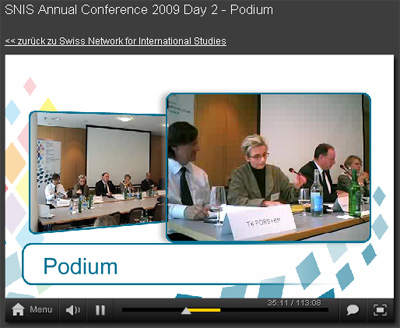
The second day of the SNIS conference was devoted to interaction between the academic and policy worlds (I introduced the conference in my previous post).
While everyone agreed that not all research must necessarily be policy relevant, the participants stressed the need for more cooperation.
The tension between demand-driven research and academic excellence dominated the discussions. On the one hand, research should provide information to help solve practical policy problems. On the other hand however, research must remain independent from the policy realm in order to guarantee objectivity and innovation.
A panelist argued that this tension was very present among European researchers, but that it didn’t bother US academics as much. Fellow Americans, if you read this, how did you solve the problem?
Here are a few (summarized) thoughts from panelists, both academics and policymakers.



